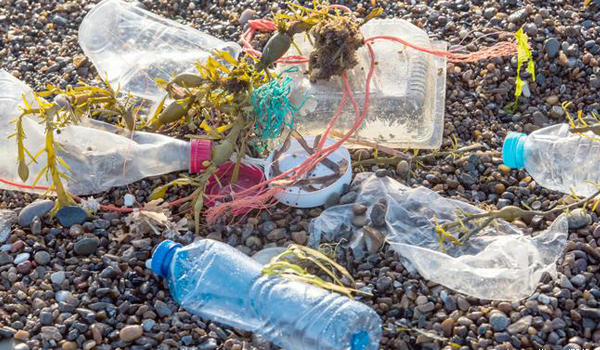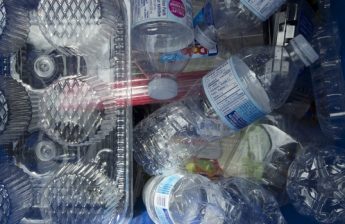Not enough is known about the long-term effects of plastics pollution, but what we do know looks bad.
For starters, there is an immense amount of it. Some 322 million tons of plastic, which amounted to more than 900 Empire State Buildings in mass, was produced in 2015, according to the United Nations Environment Programme.
Last year, a study published in scientific journal Science Advances estimated that the modern world had produced around 8.3 billion metric tons of virgin — newly manufactured — plastic. By 2015, 6.3 billion metric tons of that had become plastic waste, but just 9 percent had been recycled, the researchers found.
Plenty of plastic also ends up in the ocean, where it harms marine biodiversity and can fragment into minuscule particles, or microplastic, that is ingested by animals and, indirectly, humans — although evidence is inconclusive about how harmful that is for us.
Many of the problems encountered with the material stem from the fact that the most popular plastics used today aren’t biodegradable: The material doesn’t decompose, and instead accumulates both on land and in the ocean.
And that build up in plastic looks set to worsen if no additional action is taken. The amount of plastic accumulating in the ocean is expected to triple between 2015 and 2025, according to a report by the U.K. Government Office for Science.
It’s both an environmental and an economic problem: The United Nations Environment Programme found that marine litter costs a minimum of $8 billion annually in damage to marine ecosystems.
Tackling plastic waste
Governments are among the institutions looking for measures to alleviate the situation, with the European Union adopting a bloc-wide strategy to tackle plastics in January this year.
Part of the measures in the strategy include reducing plastic bag usage, as well as investments into the technology and materials spaces. The EU pledged an additional 100 million euro to encourage the development of more recyclable plastics materials and to make recycling more efficient.
Source : cnbc.com







